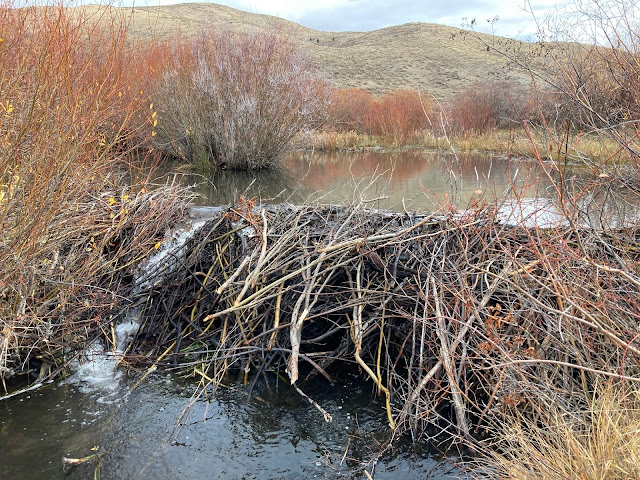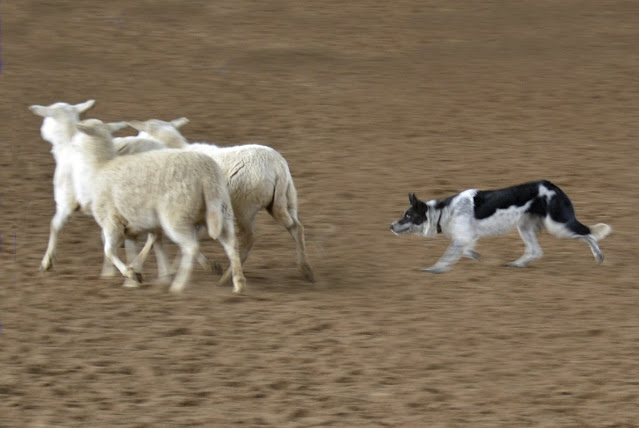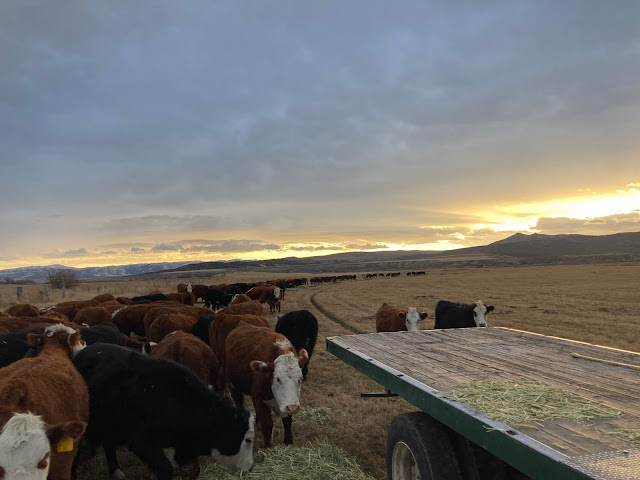I’m lucky to have grandmothers on both sides that researched
and wrote about my ancestors. Mom went even further and wrote a western history
Along the Rivers which recounts, as
she put it, “three stories, the Pioneering Story, the Mormon Story, and the
Indian Story.” And as she told these stories, interwoven are my ancestors’
adventures as they interacted with those larger movements.
So with her book as a reference guide, my four sisters and I
traversed across six states to find our roots and make memories in
mid-September.
We went East on the same route our families came West. We
started at Bear River where it makes a hairpin curve south. At this point the
emigrant trail splits, with those heading to California going south and those
headed to Oregon going north.
We continued on into Wyoming and followed the Sweetwater,
then the North Platte that guided travelers westward. We learned about the handcart pioneers, of which our great
grandfather was one, and the tragedy that befell those who got caught in an
October blizzard in Martin’s Cove, now a welcoming visitor’s site southwest of
Casper.
We saw wagon ruts, actually a deep trench through sandstone,
near the town of Guernsey, Wyoming. Register Cliff is nearby too, where
emigrants carved their names and often the year of their travel. We even found
the name “Just” which may have been placed there by our very own great
grandfather. The date was 185- (the last digit illegible). Our Just family
traveled in 1857. Could it be? My sister proclaimed on the spot, “We’re owning
it!”
We stopped at Fort Laramie, a large restored complex of
barracks, officer quarters, etc. of a fur trading post turned military fort in the 1800’s. We watched a live demonstration of heavy artillery put on by park employees in period soldier dress. They did the cannon shuffle for us, the five person dance of
loading and firing each round. We also learned that these large arms were
mostly for scaring the Indians, their most frequent use being the raising and
lowering of the flag each day.
We drove through miles and miles of corn and soybeans that
defined our route in rural eastern Nebraska, Iowa, Illinois and Missouri. With
neatly mown and manicured roadways and farmsteads it was stunningly beautiful. And it's green because it rains so much there in the summer. But the conservationist in me wonders why they can’t leave some plants to
mature for the birds and bees and butterflies.
We toured the old townsite of Nauvoo, Illinois, where our
Mormon ancestors, the Webbs and Carlings who were Blacksmiths, and the Brownings who made
guns, were important to the Mormon emigration to escape persecution. I'm not a Mormon, but the site is a joy to visit. And don't miss the performing missionaries if you go. They sing and dance like professionals.
Human history aside, one of my favorite stops was to venture into a stand of restored tall grass prairie full of buzzing wildlife.
All of us being ranch raised, we especially enjoyed the oxen
ride at Nauvoo. Any breed of cattle, mostly male and castrated, is called an ox if
it’s used to do work. They need to have horns so the yoke will stay put. For
wagon trains, oxen were preferable to horses because they were gentler,
stronger, could eat a wider array of forages, would not be stolen by the
Indians, and were cheaper to purchase, They also required only a yoke, no
harness and reins like horses. The “bull whacker” would walk beside the yoke of oxen (one pair) or two or three, calling “gee” and “haw” (directional
demands) to keep them moving ahead. The families walked alongside as the wagon would be carrying their supplies.
We kept going east to Springfield, Illinois, to visit the
Lincoln Museum and Library. It was good fun plus educational. The lifelike figures of Lincoln and his contemporaries bring the past absolutely alive. The exhibits profile a complex leader and a time of great divisiveness in our nation. It gives a useful perspective on our current
quagmire. As a country we got past it then and will do so now.
Five women (someone said “elderly," I said “middle-aged")
taking off alone for 4,000 miles? Crazy? We thought perhaps so when our left
wheel sped past us while we were traveling on a country road near Torrington, Wyoming. We
pulled off safely and the tire landed in a canal which was only mud
not water. Through the kindness of a cowboy and a farmer/cop, we were back on
the road the next morning.
Yes, we went to learn about our ancestors, but we mostly
learned about us as sisters. We got along well as usual. Ok, so there’s a few
subjects we avoid, but we thoroughly enjoyed the hours of drive time, the
conversations over the less than luscious continental breakfasts offered by our
lodging hosts, the comradery shared as we built sandwiches on various picnic
tables across this beautiful country, and imagining our Mom's excitement as we cemented our relationships with each other and with the brave souls that preceded us. We made friends with strangers, found out
google maps were amazingly helpful and flawed at the same time. And we couldn’t
help but marvel at how in 170 or so years we’ve gone from weeks of near
starvation and camping in the elements to queen beds in crisp sheets, hot showers and an array of dining choices
at our every beck and call.
Oh how lucky we are. To live where we do. To have the
parents we did. To be so similar, yet so different. And to be the very best of
friends.
 |
| reading from Mom's book at Chimney Rock, an important landmark along the Emigrant Trail |
 |
restored gun shop owned by our Browning ancestor
Nauvoo, Illinois |
 |
discussing strategy with McClellan and Grant
Lincoln Museum, Springfield, Illinois |
 |
how great grandfather Nels's family did it
Martin's Cove, Wyoming |
 |
Love the native prairie grass and forbs
Nauvoo, Illinois |
 |
my valiant sisters
me, Donna, Becky, Kittie, Merle |
 |
| wagon ruts at Guernsey, WY |
































